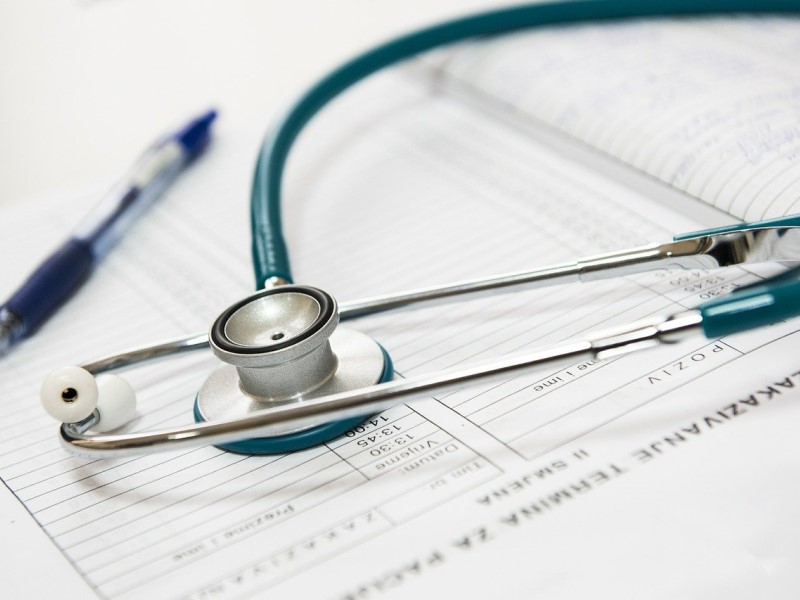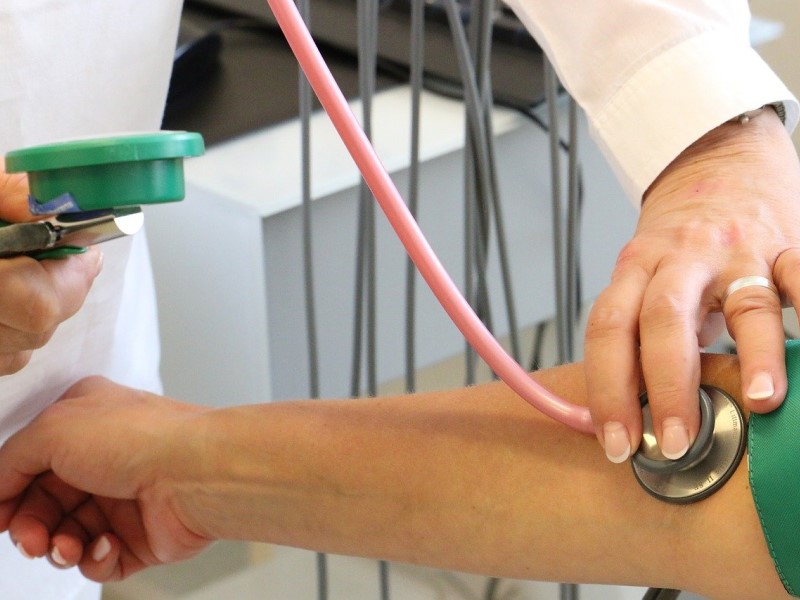Did you know that high blood pressure, or hypertension, in pregnancy is one of the most common medical problems an expecting mother can face? It is also referred to as hypertensive disorders of pregnancy (HDP), and this condition is defined as blood pressure that is at least 130/80 mm Hg or higher.
On a global scale, it is a leading cause of maternal and perinatal mortality. However, with the right steps taken to manage hypertension, it won’t be necessarily dangerous for mother and baby. But first, it’s important to get to know the types of hypertension conditions there are, along with the symptoms, risk factors, and proper way to manage them.
Types Of Hypertension Conditions In Pregnancy
Chronic Hypertension
A woman has chronic hypertension if she has pre-existing hypertension before she gets pregnant, or if it is detected 20 weeks before pregnancy.
Preeclampsia-Eclampsia
If hypertension is detected after 20 weeks of pregnancy, along with proteinuria (excess protein in urine) or other signs of organ damage, then it is classified as preeclampsia. The damage to organs can include the liver, kidneys, blood, or brain. If left untreated, preeclampsia can lead to a seizure attack or convulsive phase of the disorder, otherwise known as eclampsia. This can subsequently cause serious complications that can be fatal.
Chronic Hypertension With Superimposed Preeclampsia
A woman who has hypertension pre-pregnancy can develop worsening high blood pressure and experience signs of preeclampsia during pregnancy. This may include protein in the urine and other hypertension-related complications.
Gestational Hypertension
A woman is diagnosed with gestational hypertension when high blood pressure is detected after 20 weeks of pregnancy. That said, there are no accompanying signs of preeclampsia such as proteinuria or other signs of organ damage.
What Are The Symptoms Of Hypertension In Pregnancy?

Without a blood pressure monitor, it will be hard to detect pre-existing chronic hypertension due to the minimal symptoms it has. That said, you can identify other preeclampsia symptoms at home or the clinic, such as:
- Severe and persistent headaches
- Changes in vision such as temporary loss of vision, blurred vision, sensitivity to light, or seeing spots
- Upper abdominal pain, usually under the ribs on the right side
- Excessive and abnormal swelling of feet, hands, or face
- Experiencing breathing difficulty or shortness of breath
- Excessive nausea or vomiting during pregnancy
- Decreased urine output
- Blood pressure readings of 140/90 mm Hg (taken twice, at least four hours apart)
- Proteinuria (excess protein in urine) or additional signs of kidney problems
- HELLP syndrome (it stands for haemolysis, elevated liver enzymes, or low platelet count), which is a complication of preeclampsia
Meanwhile, there are possible complications related to hypertension in pregnancy for both mother and baby. This includes heavy bleeding due to placental abruption, decreased blood flow to the placenta (which causes low birth weight), premature childbirth that is induced to prevent life-threatening risks, and future cardiovascular diseases.
Who’s At Risk Of Developing Hypertension In Pregnancy?

Depending on age, type of pregnancy, and lifestyle, many circumstances can increase the risk of high blood pressure or hypertension in pregnancy, such as:
- Being over the age of 40
- If it’s your first pregnancy
- Being pregnant with multiple babies (as your body works harder to nourish more than one baby)
- If you were obese before getting pregnant
- Having a family member (mother, siblings, etc.) who has a history of HDP
- If you had HDP previously
- If you’ve suffered from diabetes, kidney disease, rheumatoid arthritis, lupus, or scleroderma
How To Treat And Minimise The Risk Of Hypertension In Pregnancy
Go For Prenatal Check-Ups Frequently

Don’t miss your prenatal appointments as they’re imperative to monitor HDP symptoms and related complications. Besides measuring your weight and blood pressure, you’ll also go for blood and urine tests often. Your doctor will be able to monitor your baby’s condition as well, to ensure healthy growth throughout each trimester. These check-ups allow for proper treatment while anticipating the possibility of preeclampsia.
Take Medication That’s Safe For Pregnancy
Have pre-existing high blood pressure? Consult your doctor to ensure you’re getting the safest hypertension medication with the most appropriate dosage. After all, not all regular blood pressure medications may not be suitable for pregnant women. This includes angiotensin-converting enzyme (ACE) inhibitors, renin inhibitors, and angiotensin II receptor blockers. Also, avoid switching up your medication habits or buying over-the-counter medicine for other health issues without prior consultation with your doctor.
Get A Doctor’s Prescription For Preventive Measures
A few preventive measures can be taken, provided you’ve gotten a doctor’s recommendation and prescription. For instance, high-risk women are advised to take low-dosage aspirin or extra calcium supplement (CaCO3). Meanwhile, magnesium sulphate is recommended for women diagnosed with preeclampsia.
Eat A Balanced Diet And Stay Hydrated

A healthy diet comprising lots of fruits and vegetables is ideal so that you and your baby are getting enough nutrients. Ensure you’re drinking sufficient water to stay hydrated too. Sugar, salt, and fat consumption should be controlled and monitored closely. That said, salt is not something pregnant women should skip entirely, so consult your doctor beforehand.
Lead An Active Lifestyle Even During Pregnancy
For starters, avoid smoking, drinking, and taking illicit drugs. These should be off-limits as they’ll only worsen your HDP, harm you and your baby, and cause other health issues. On the other hand, if you’re overweight, it is advisable to lose a few kilos prior to getting pregnant, in order to reduce the risks of HDP.
While it’s completely normal to gain weight during pregnancy, speak to your doctor to find out what’s a healthy range of weight gain for you. Most importantly, remember to stay active by doing pregnancy-friendly exercises, such as prenatal yoga, brisk walking, or gardening.
Knowing How To Manage Hypertension In Pregnancy Is Crucial For Mum And Baby’s Health

Hypertension in pregnancy is a prevalent problem here in Malaysia, especially considering how a large portion of the population has high blood pressure to begin with. This is why it is all the more important to know how to manage HDP properly. The most crucial step? Never miss your prenatal check-ups!
Consult your doctor regularly and have your blood pressure monitored continuously. With these steps taken, as well as the other methods mentioned in this article, you’ll be on the right track to taking good care of yourself and your baby. And once your baby is born, feeding and nursing will be a crucial part of motherhood. So, read up on these best breast pump brands in Malaysia, as well as the best first solid food for babies.
